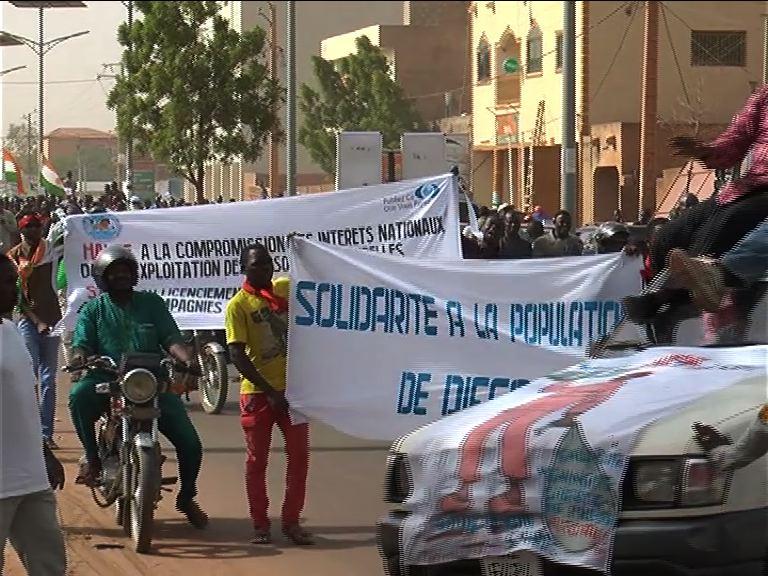Natural resources and civic space: A perspective from the UN Special Rapporteur
Blog

Publish What You Pay (PWYP) and its members have noticed a worrisome trend in shrinking civic space as the cases of Niger, Myanmar and Azerbaijan have illustrated.
As a response PWYP has been working with the United Nations Special Rapporteur on the rights for Freedom of Peaceful Assembly and Association, Maina Kiai, on a recent report focused on the exploitation of natural resources, a sector that often involves big money and equally big efforts to silence dissent. Consequently, the space for individuals and civil society groups is often limited, and is becoming even more constrained as the competition for resources increases. Below are just a few examples:
Azerbaijan has been the focus of international organisations for some time because of its restrictions of civic space. Its government has placed restrictions on access to foreign funding to curtail the activities of associations engaged in natural resource exploitation activities, including the PWYP coalition in the country. These restrictions have been accompanied by a range of intimidation tactics, further threatening the right to association and expression in the country. The EITI and other international organisations have called on the Government of Azerbaijan to ensure that civil society representatives involved in the EITI are able to access their bank accounts and register new grants but haven’t been successful. In addition, the Open Government Partnership (OGP) found that concerns raised by ARTICLE 19, CIVICUS and PWYP regarding the deterioration of civic space in Azerbaijan needed to be addressed. The continuation of restrictions on civil society resulted in the downgrading of Azerbaijan from EITI compliant country to candidate country in April 2015.
Individual human rights defenders and associations around the world may also be subject to attacks, stigmatisation, intimidation, surveillance, travel bans, and risk the suspension of their activities or even dissolution of their organisation when they speak out against natural resource exploitation. Publish What You Pay Uganda for instance reported that they had had their equipment confiscated for nearly two months after trying to screen a documentary on lessons that could be learned from other resource-rich countries.
During François Hollande’s visit to Niger in July 2015, approximately 10 activists, including Ali Idrissa, the national coordinator of the Publish What You Pay coalition, were arrested that morning. The day before the group had held a joint press conference calling for peaceful demonstrations during Hollande’s visit. They were asking for Areva, the French state-owned nuclear company, and the Nigerien government to publish the details of a new uranium extraction contract. One year later this contract remains unavailable and space for civil society continues to pose challenges.
In Latin America peaceful protesting near mines has many times lead to violence against protesters and even killings. In 2013 in Guatemala, the Canadian mining company Tahoe Resources’ security personnel opened fire on peaceful protesters.
The right to freedom of peaceful assembly and of association is essential in ensuring that natural resource exploitation is fair, transparent and accountable and that it benefits citizens. In this regard, the UNSR report strongly recommends that governments create an enabling environment in which civil society can access relevant information, participate in decision-making and express opinions freely, including through peaceful assemblies, without threats of prosecution or other harm.
The publication of the report is an opportunity for the extractives sector to improve how it protects the right to freedom of expression and peaceful assembly. On one hand, both governments and corporations need to respect civil society groups, whether their actions are in support of or critical of the decision-making chain in natural resource governance. Civil society organisations, on the other hand, need to increase and enhance the engagement and participation in multi-stakeholder initiatives, through which CSOs have the opportunity to engage in decision-making on natural resource governance. Hence PWYP will continue to create more awareness of the EITI civil society protocol as well as ensure that it is used throughout the EITI process.